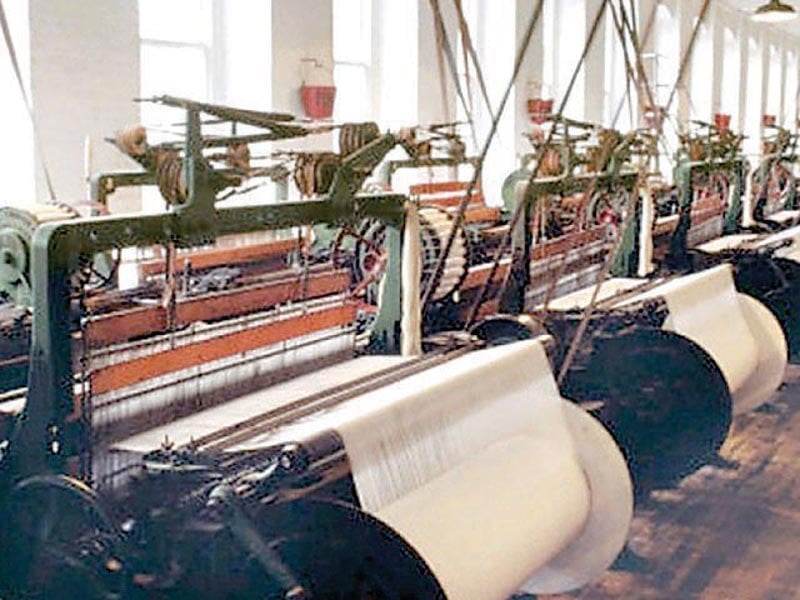
The well-entrenched real estate and textile lobbies prevailed over the federal cabinet at the eleventh hour, as the government was compelled to drastically change its original plan of fully capturing the income generated from few of the most lucrative sectors.
The process of conceding to the demands had begun even before a special cabinet meeting, after Prime Minister Nawaz Sharif himself amended a tax proposal that was aimed at levying 7.5% advance income tax on monthly electricity bills amounting to Rs35,000 of domestic consumers.

During a meeting held last week, the premier raised the ceiling to Rs100,000, defeating the purpose of the original idea, revealed sources privy to closed-door discussions.
The special cabinet meeting was held on Tuesday, hours before the government presented its second budget in parliament.
When various lobbies were fighting to protect their interests, the federal ministers too jumped into the bandwagon and demanded an increase in their salaries equivalent to the one given to civil servants, sources in the Ministry of Finance revealed.
The biggest setback came from the influential textile lobby that blocked the government’s move to increase sales tax on yarn from 2% to 3% and on fabric from 3% to 4%.
After the prime minister gave the go-ahead to the Ministry of Finance, the lobby approached Finance Minister Ishaq Dar on Sunday and persuaded him to drop the proposal, sources said.
Talking to The Express Tribune, the finance minister said it was a win-win situation as in return for not increasing the tax on domestic sales of the textile sector, the government pushed the industry to agree on another budgetary measure.
The Federal Board of Revenue (FBR) had estimated receiving about Rs20 billion from the textile sector by marginally increasing the tax. At the standard rate of 17%, the textile sector had to cough up Rs65 billion next year.
The FBR had also tabled a proposal to introduce 1% advance tax on purchase of property for tax-compliant people and 2% on those who are not in the tax net. The proposal was aimed at encouraging the filing of tax returns, according to the FBR.
Though the cabinet approved the proposal, it exempted properties having certain value from the levy.
Sources said during the cabinet meeting, Railways Minister Khawaja Saad Rafique, who has stakes in the real estate sector, opposed the move. On his insistence, the prime minister exempted property worth Rs3 million, according to the assessment of deputy commissioner, from advance tax.
The FBR had proposed Rs2 million ceiling for tax exemption, sources said. The finance minister’s speech states “properties with value of less than Rs2 million” will be exempt from the tax.
The deputy commissioner rates are peanuts when compared with market rates. A property having deputy commissioner rate of Rs3 million may have market value of Rs40 million, according to the sources.
On average, the deputy commissioner rates are five times less than market rates, say real estate experts.
The cabinet, at one point, wanted to set the limit at Rs5 million but FBR Chairman Tariq Bajwa stepped in.
Bajwa defended the step despite his close relatives being associated with the real estate business. At the post-budget press conference, Dar praised Bajwa for his honesty and integrity.
The minister was of the view that the cabinet raised the exemption ceiling to Rs3 million in a bid to facilitate the middle-class.
According to sources, cabinet ministers also pushed for increase in their salaries, which Dar resisted due to possible criticism in the media and by opposition parties. The prime minister suggested that if the federal ministers felt that their salaries were low, he was ready to surrender his pay in favour of them.
Published in The Express Tribune, June 5th, 2014.
Like Business on Facebook, follow @TribuneBiz on Twitter to stay informed and join in the conversation.

1732184775-0/BeFunky-collage-(80)1732184775-0-165x106.webp)

1731933289-0/BeFunky-collage-(68)1731933289-0-165x106.webp)













COMMENTS
Comments are moderated and generally will be posted if they are on-topic and not abusive.
For more information, please see our Comments FAQ